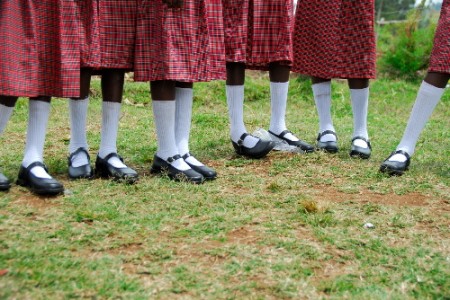
According to a report by the Kenyan Teachers Service Commission (TSC), up to 12,600 girls were sexually abused by teachers over a five-year period from 2003 to 2007. Most of the victims were aged between 12 and 15; and in some cases, teachers abused as many as 20 girls before they were reported.
As a result, a total of 600 teachers were fired in 2009, and this year so far the number totals 550. In addition, the survey, done jointly with the non-profit Centre for Rights Education and Awareness (CREAW), found that 633 teachers were charged with sexual abuse in the five years covered by the study. The report went on to state that these numbers probably only represented the tip of the iceberg, as most cases went unreported.
Failure to report cases of sexual abuse to the police or the TSC was often attributed to either the fear of stigmatization, or the collusion between teaching staff and the officials investigating the abuse. In some cases, education officials even collaborated with the offenders. In addition, many parents did not want to involve the notoriously corrupt police out of fear of repercussions.
The most common problem is abusers bribing police, court officials or parents. Bail is almost always available, and usually for less than $100. Representatives of Kenya’s government believe the perpetrators interfere in around 80 percent of all cases. And even if a case does go to court, it is still far from certain justice will be served. While last year the government passed a new law, the Sexual Offenses Act, thereby strengthening penalties for child sex abuse, the judicial process remains excruciatingly slow, with evidence regularly going missing and court files habitually disappearing.
Only in 2008, a toll-free crisis hotline managed by Childline Kenya revealed the true scale of the problem. The service led to a massive flood of calls from children, particularly in rural areas. Thanks to this help line, and also thanks to a large number of domestic and international aid groups active in the country, children’s rights in Kenya actually stand head and shoulder’s above most others in Africa.
Throughout the continent the situation is perilous, and most cases of child sex abuse remain unreported, with few countries even caring to keep records of them. Nevertheless, in the past 10 years, things have started to improve slightly, with the number of African countries offering a hotline to report child abuse rising from four to fourteen. According to UNICEF, Madagascar, South Africa and Zimbabwe have all passed laws to address sexual offenses, and eight other countries are currently devising strategies aimed at stopping violence against children and young adults.
Not a moment too soon. Sexual violence against children has severe consequences – both on an individual and a societal level, spanning from widespread depression and high suicide rates to prevalent learning difficulties and school dropouts. There are many theories about why sexual abuse in the education system is so commonplace across Africa, ranging from alcoholism and poverty to lax policing and misunderstood tradition. Or maybe abusers in Africa attack children simply because they can get away with it. Whatever the reason – school must remain a place where children can learn and develop in safety, not where they are abused by the very people entrusted with their care and training. It is of vital importance to the welfare of all nations across the continent to deal with this problem immediately. The abuse of children must be stopped and those responsible properly prosecuted.
Check out the ISN’s resources on Children’s Rights, Sexual Abuse or Schools in Africa for further information.

